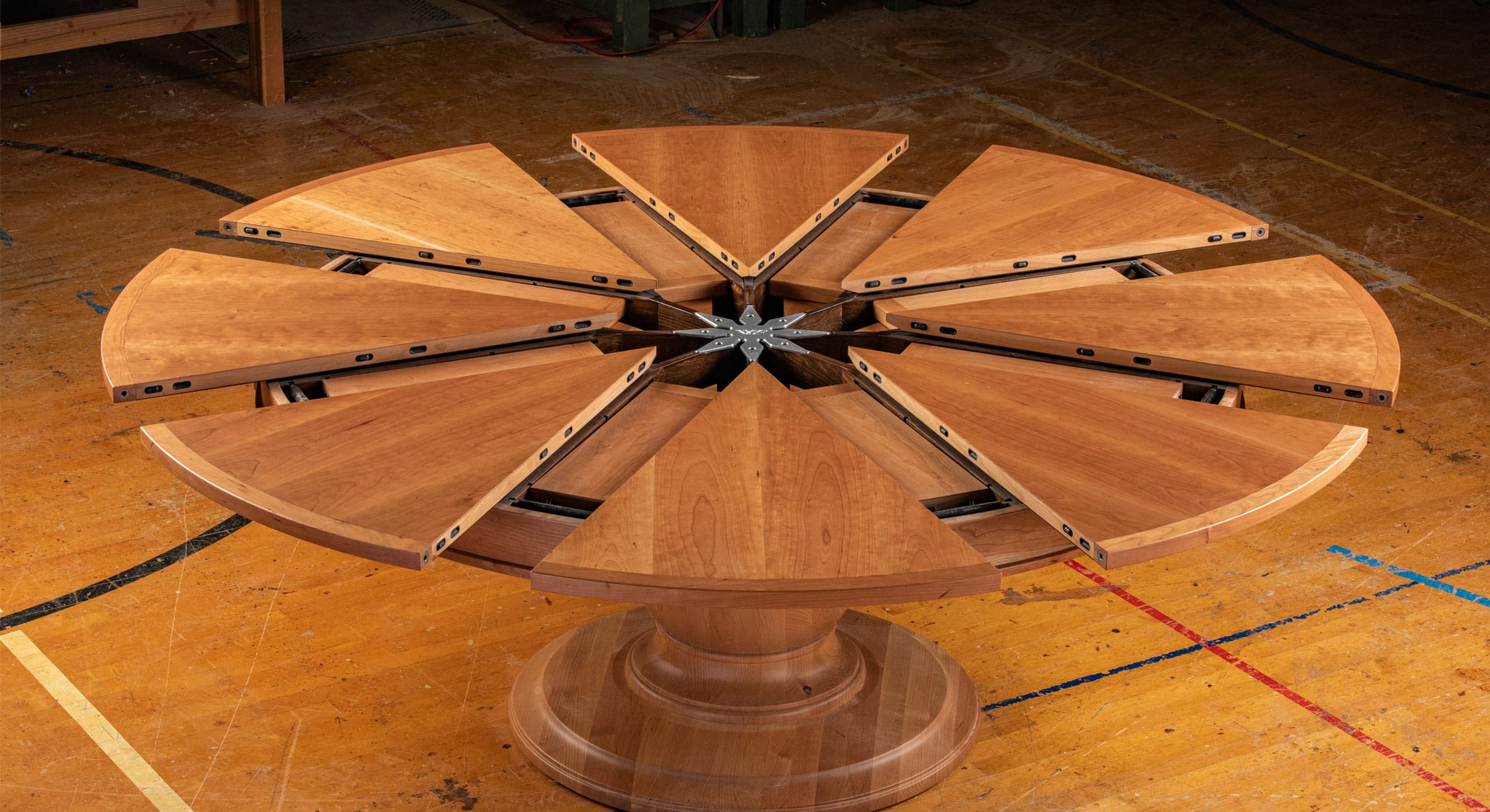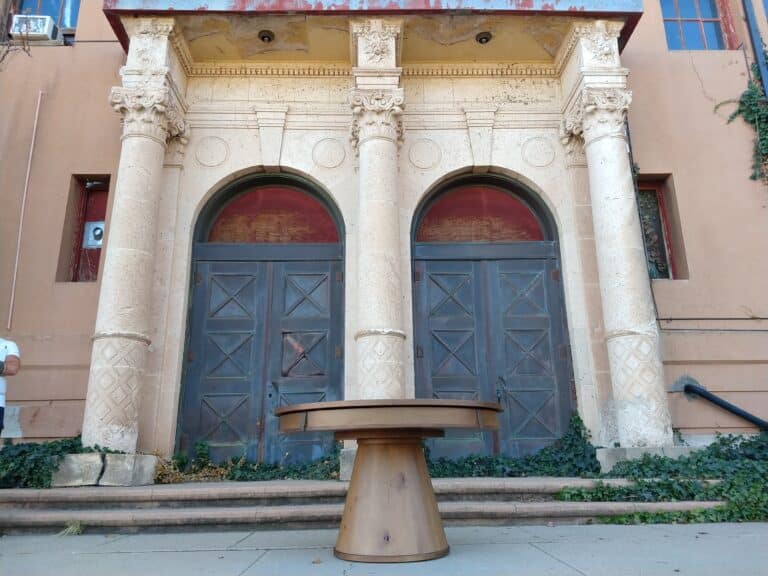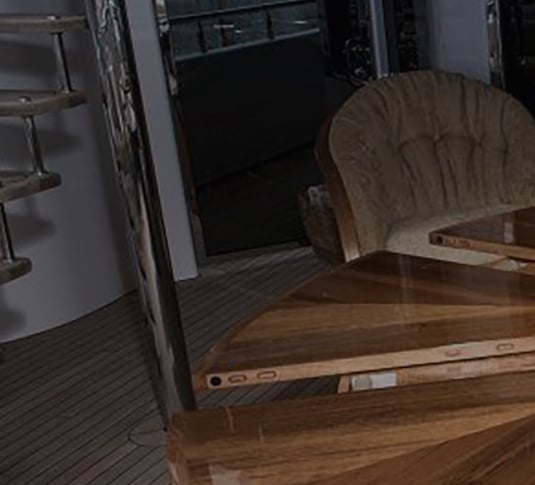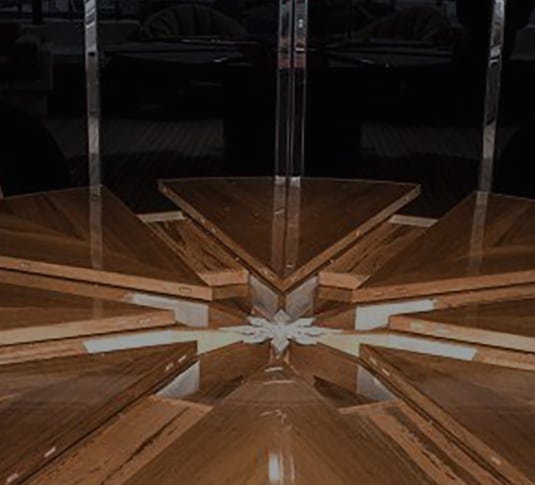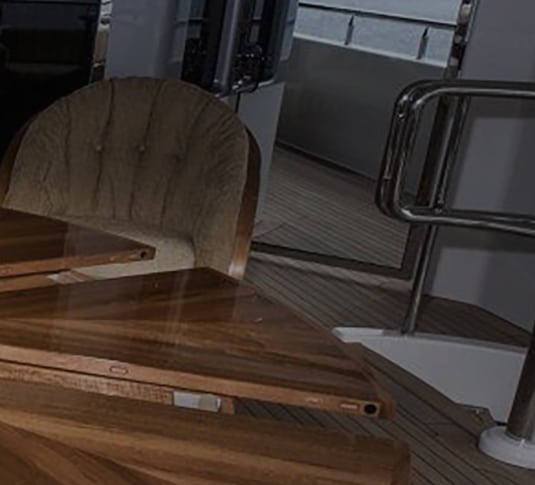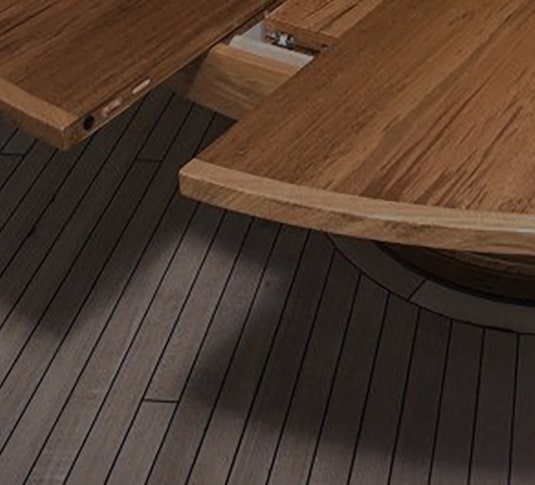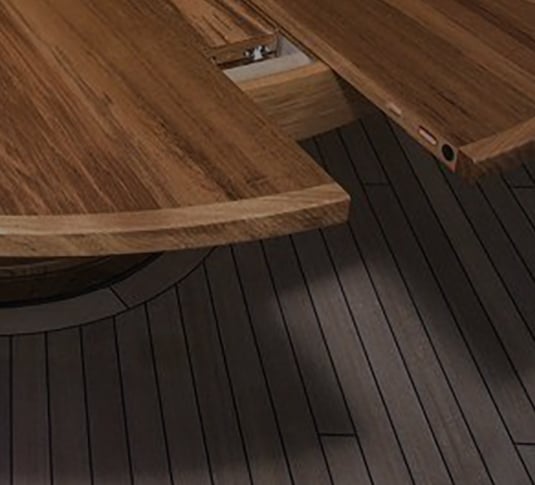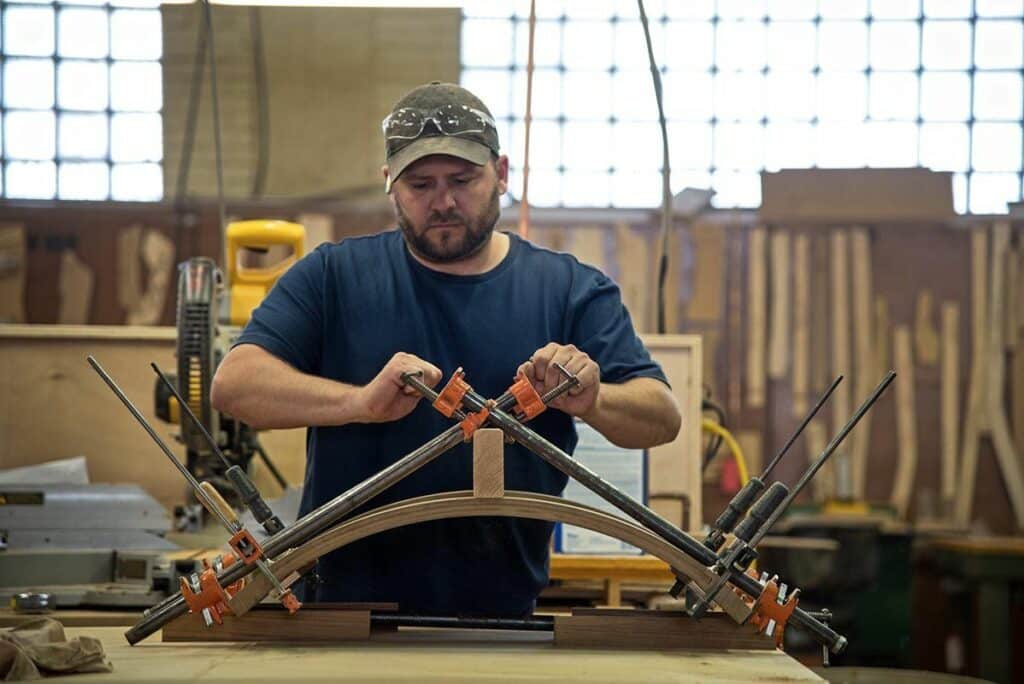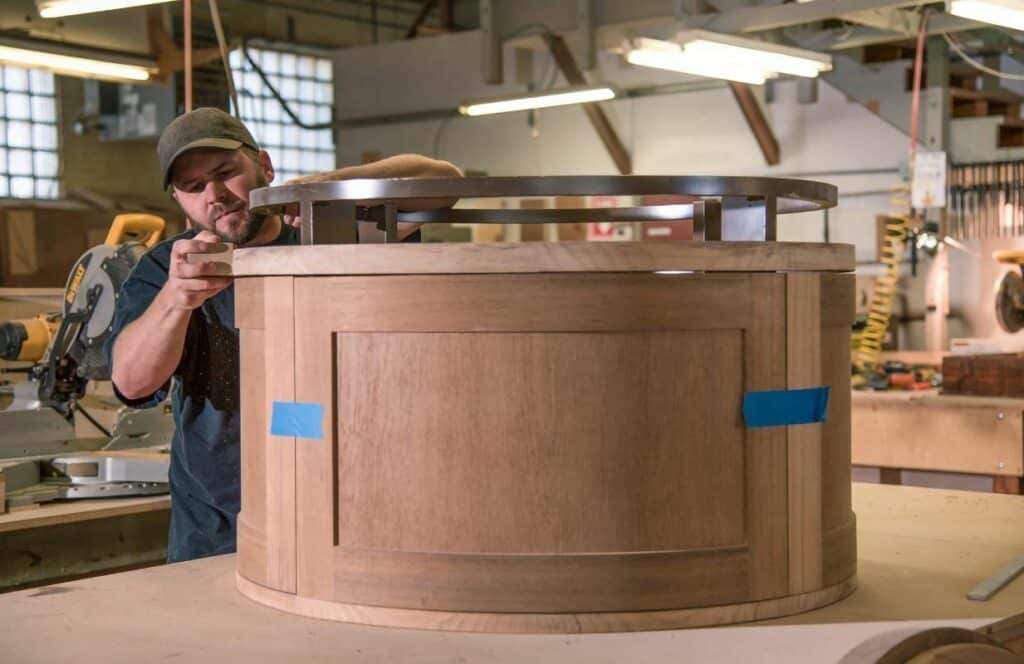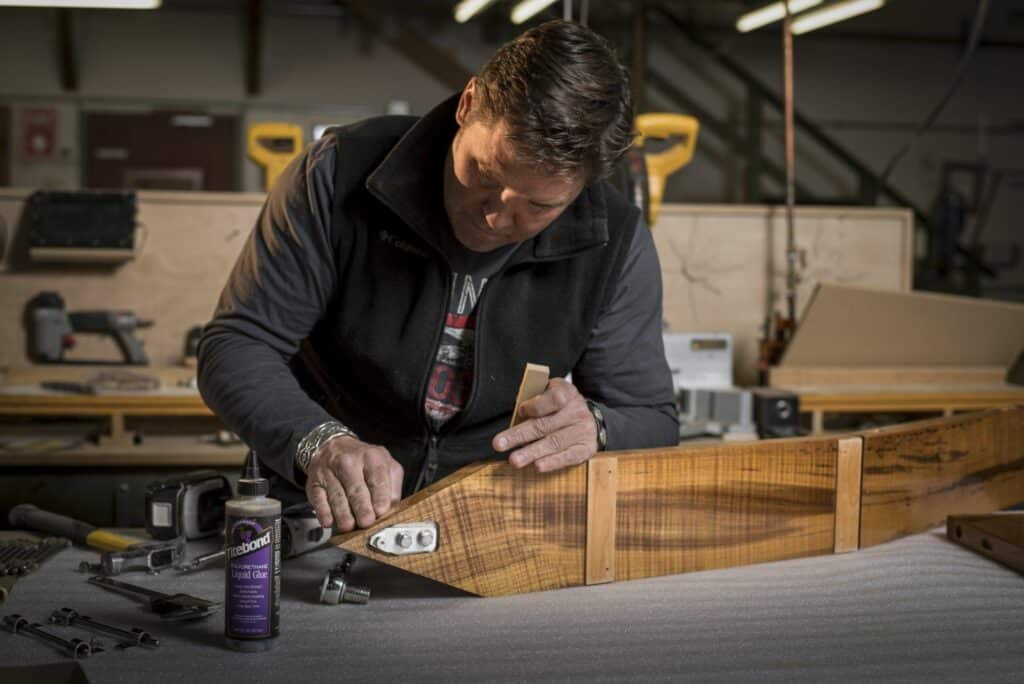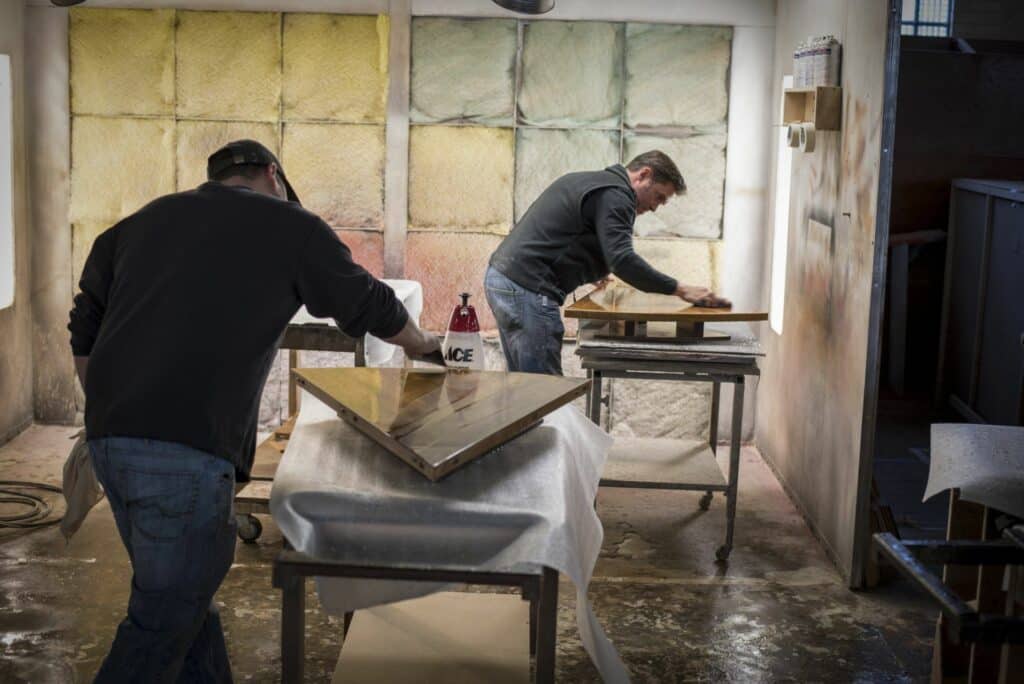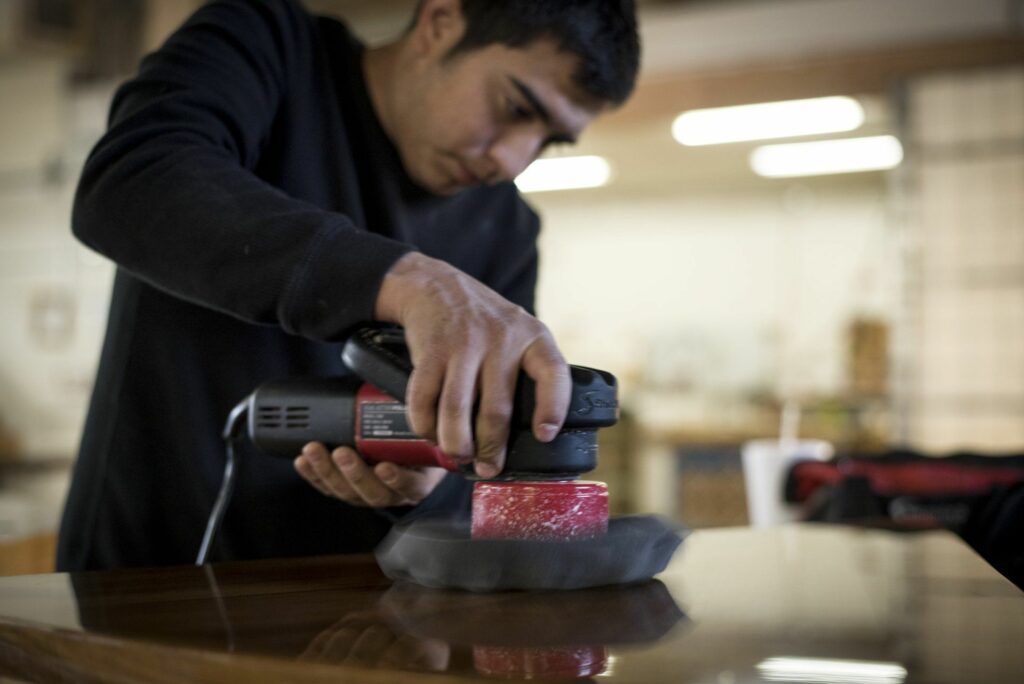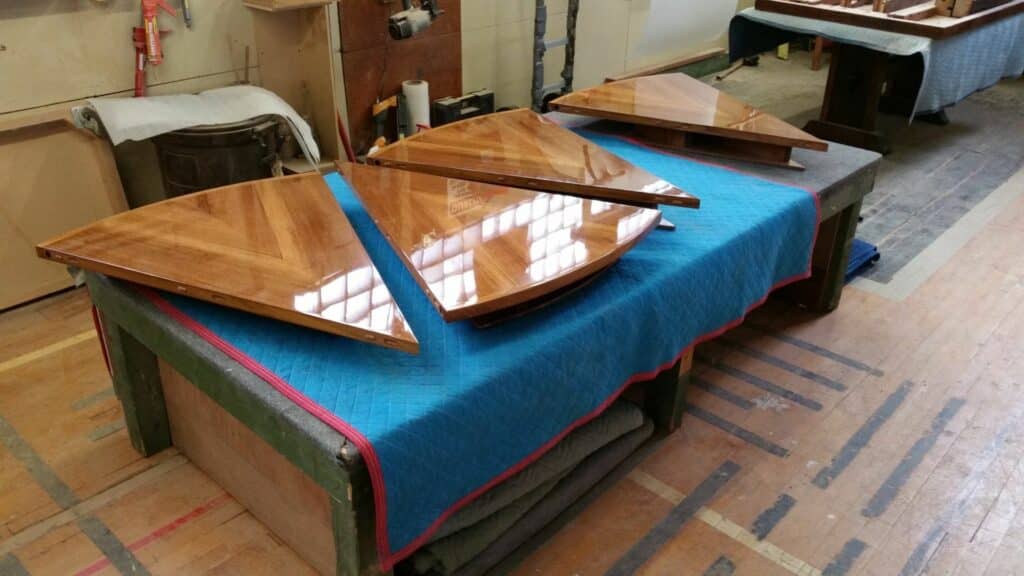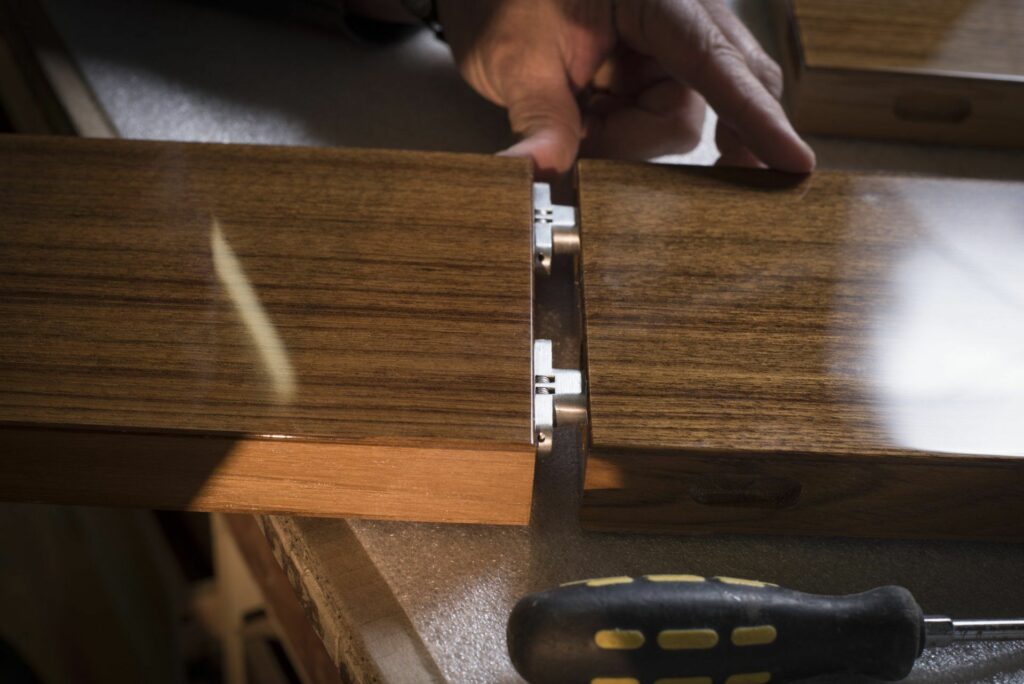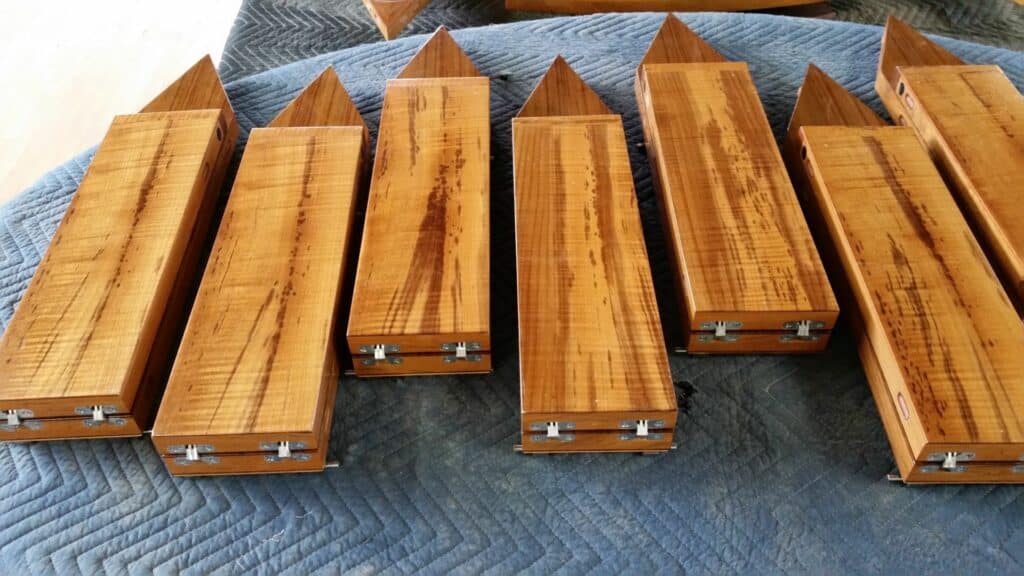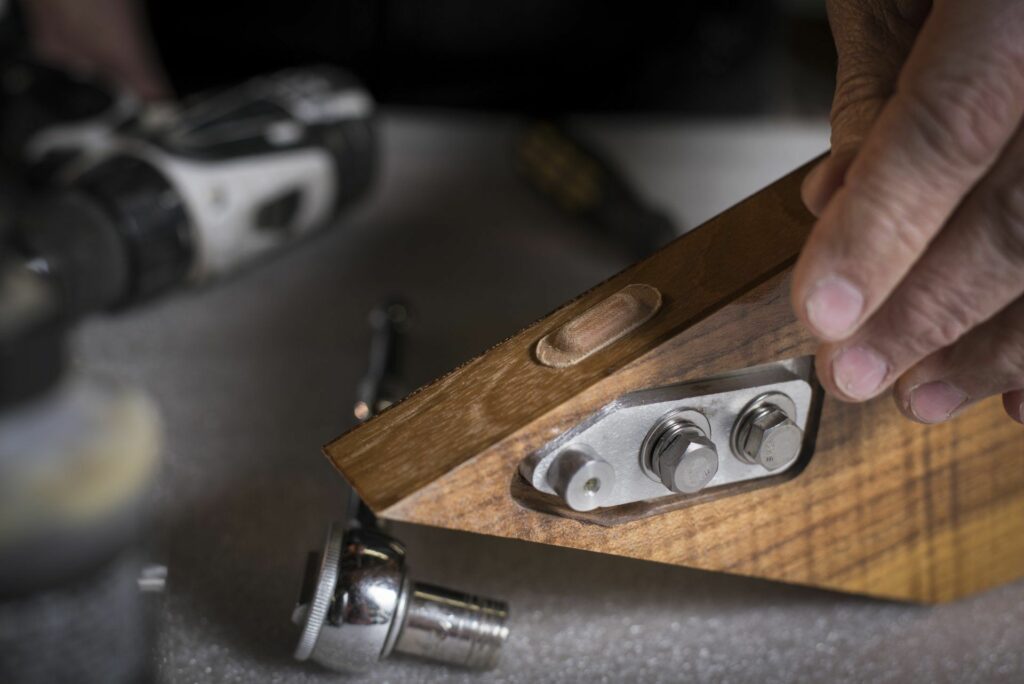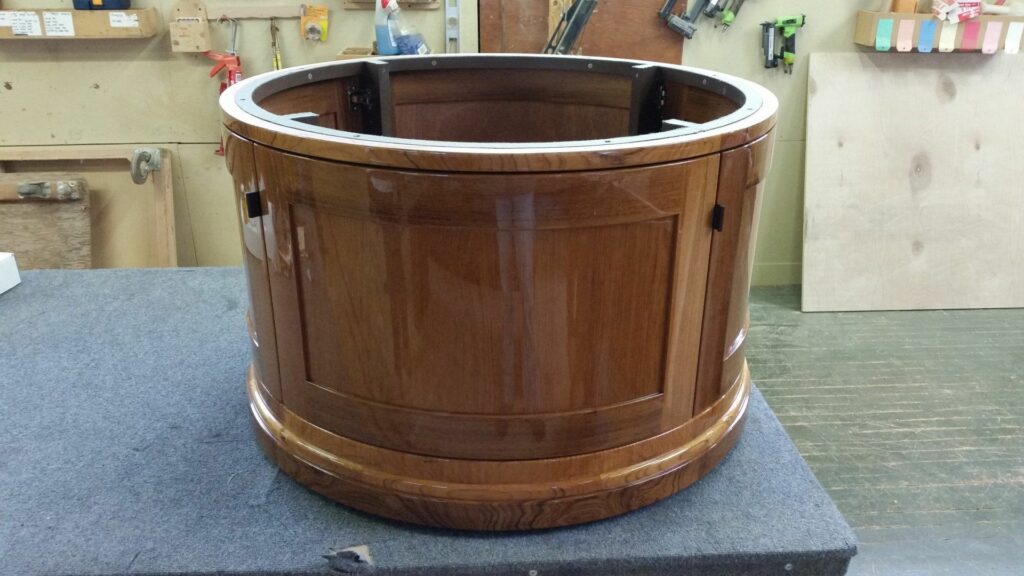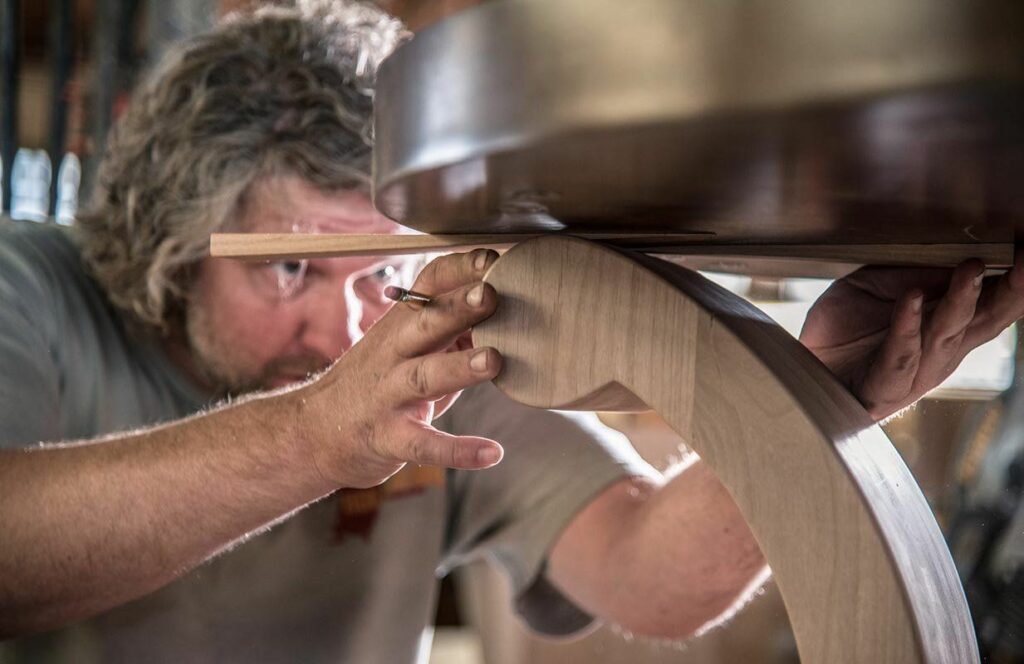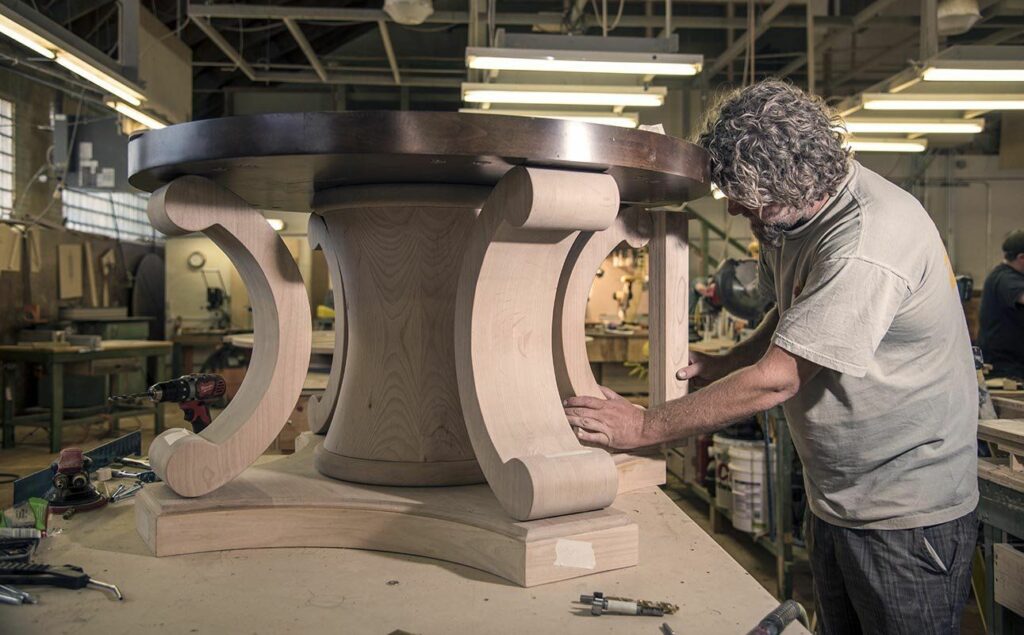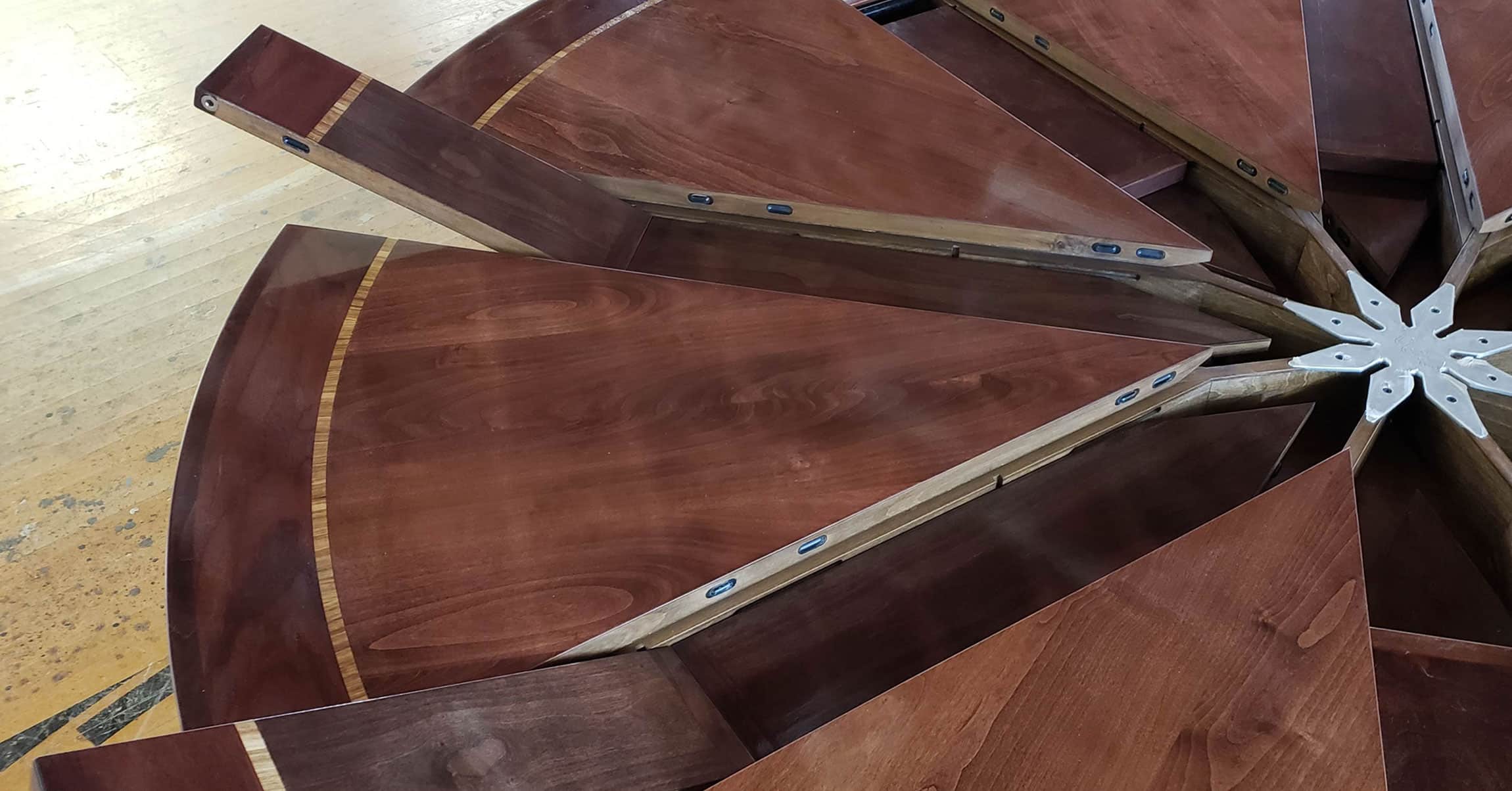In this blog on caring for your expanding round table, we’ve put together a comprehensive guide that covers the following:
- Understanding Your Table’s Material
- Daily Maintenance for Your Expanding Table
- Periodic Care and Inspection
- Handling Spills and Stains
- Protecting Your Table From Environmental Factors
- When and How to Seek Professional Assistance
Understanding Your Table’s Material
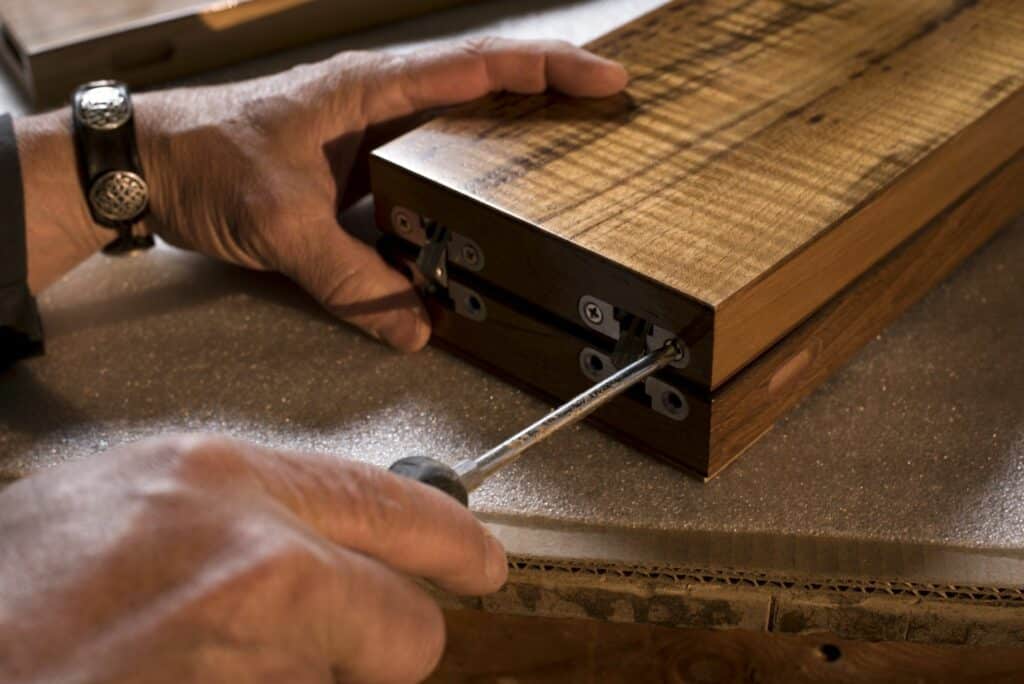
It’s important to understand the materials that go into your expanding round table. When it comes to such a precious investment, make sure you’re getting nothing less than the best. Our team of craftsmen uses various wood species that give your table a stunning appearance that lasts. We’ll look further into the wood species, finishes, and mechanisms that go into the expanding round table process.
Types of Wood Used
Depending on the style of table you go with, numerous types of wood are used in crafting expanding round tables. With Lotus WoodWorks, our uniquely crafted expanding round tables are made with your choice of American hardwoods and exotic woods. We offer a wide range of wood species, including, but not limited to, walnut, cherry, teak, and barn wood.
Protective Finishes
Our finishes are the most critical part of the process. Finishes increase the durability and longevity of your table so that it stays in top shape.
The coatings we use offer the highest level of color correction to ensure your table exceeds your expectations. Likewise, the starting price includes a two-part custom color toning and glaze, as well as a multiple-coat flat or satin conversion varnish top coat.
The Mechanism of Expansion
One of the pieces of our table creations that makes them stand out from the rest is their ability to expand outward. The design makes it quick and easy to expand your table and create additional space for seating. Our tables employ a locking carousel, eliminating the need to walk around the table while expanding or collapsing it.
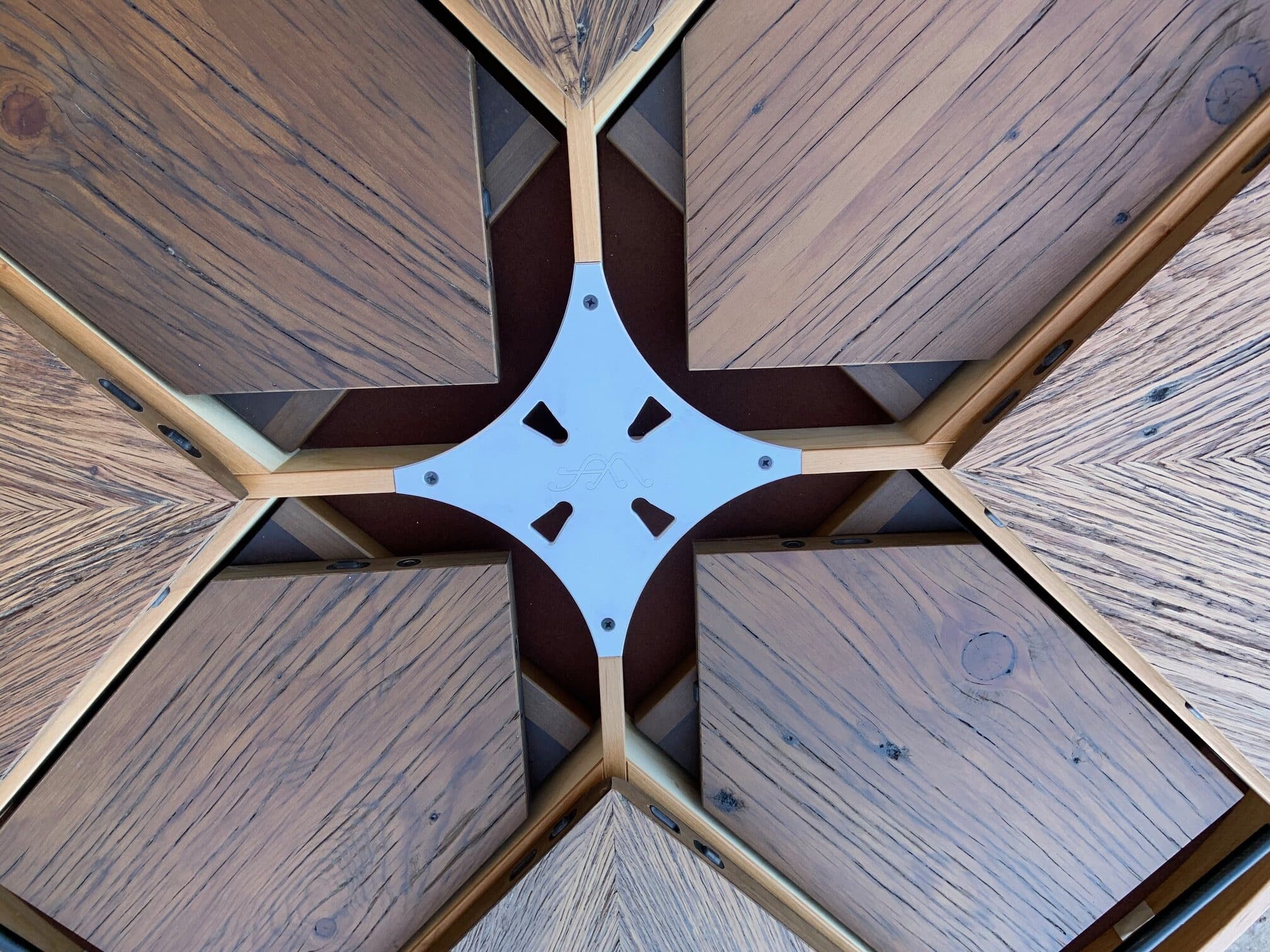
Binder – Barn Wood / Angled Bookmatched / Satin Finish
With our hinged and hidden leaves, you can easily expand or contract your table to suit your needs.
Daily Maintenance for Your Expanding Table
Once your exquisite expanding round table is a part of your home, you’ll only need to worry about minimal maintenance to keep it looking clean and new.
Cleaning Techniques
- Dusting. A microfiber duster swiftly removes dust and dirt from the surface of your table without causing damage. We recommend dusting every few days or at least once a week to maintain a shiny, clean tabletop.
- Wiping. To remove crumbs, spills, and germs, wipe down the surface of your tabletop using a mild vinegar and water solution being careful to dry thoroughly after cleaning. Never use harsh chemicals such as bleach or others containing abrasives.
Protecting the Surface
- Use of coasters. You can use several types of coasters to prevent rings from cups that can tarnish the wood. Cork coasters are the most recommended type to use because they can absorb moisture from spills and won’t scratch the table’s surface.
- Placemats. Like coasters, placemats protect the surface of your table from water, scratches, and food stains. Waterproof placemats are a great choice as they’ll create a barrier between spills and the tabletop.
It’s best to be safe with your table; there are plenty of beautiful designs and colors to choose from for your coasters and placemats.
Proper Handling of Expanding Mechanism
To utilize your round table’s expanding mechanism, follow the below steps.
- Unfasten the lock underneath for convenient spinning.
- Pull each pie out and unfold each leaf
- Push each leaf into the center
- Push each pie into the center engaging the magnets between the leaves and pies.
- Fasten the lock underneath to keep the table from spinning.
When expanding and collapsing your expanding round table, don’t force it, as the mechanisms should move without resistance when done correctly.
Periodic Care and Inspection
Expanding round tables are a unique investment with elaborate craftsmanship. At Lotus WoodWorks, our designers consider every detail of your uniquely crafted table. We highly recommend you schedule periodic inspections to ensure everything functions properly. The three essential items your service provider should be looking at include:
- Checking the expansion mechanism
- Refinishing and polishing
- Inspecting for signs of wear and tear
Handling Spills and Stains

Tables are designed to hold food and drinks, so a spill or two is inevitable. The key is to avoid harsh methods that will harm the surface of your table while thoroughly removing spots and spills.
Immediate Action Steps
When a spill occurs, use a soft, damp sponge to soak up the liquid (don’t use the rough side of the sponge). Gently absorb the spill and follow up with a non-abrasive cloth or paper towel to dry up additional liquid.
For food and colored drink spills, follow the method above to remove any potentially staining effects quickly. If any reminiscence is left, you can try several at-home combinations, such as a combination of water with vinegar.
Protecting Your Table from Environmental Factors
Regardless of the sturdiness and craftmanship of a table, you always need to be aware of how external factors can hurt the finish and wood material.
Humidity and Temperature Considerations
High humidity levels can lead to moisture damage in your expanding round table. As a rule of thumb, maintaining a humidity level between 45% to 55% and a temperature between 60 to 80 degrees Fahrenheit is advisable.
Sunlight Exposure
Avoid direct sunlight for your expanding round table as it can cause warping and bleaching of the wood. We recommend placing your table indoors and in a spot that won’t be exposed to extended sunlight during the day. If your table sits near a window, you can use a cover or curtains to minimize UV ray exposure.
Proximity to Heating or Cooling Vents
Keeping your expanding round table too close to vents can damage the wood and block your HVAC system’s airflow. Forced air dries out the wood and can loosen tightening mechanisms. You can use deflectors to redirect the airflow for floor and deck vents. That said, keeping your table in a place that won’t receive direct airflow is best.
When and How to Seek Professional Assistance
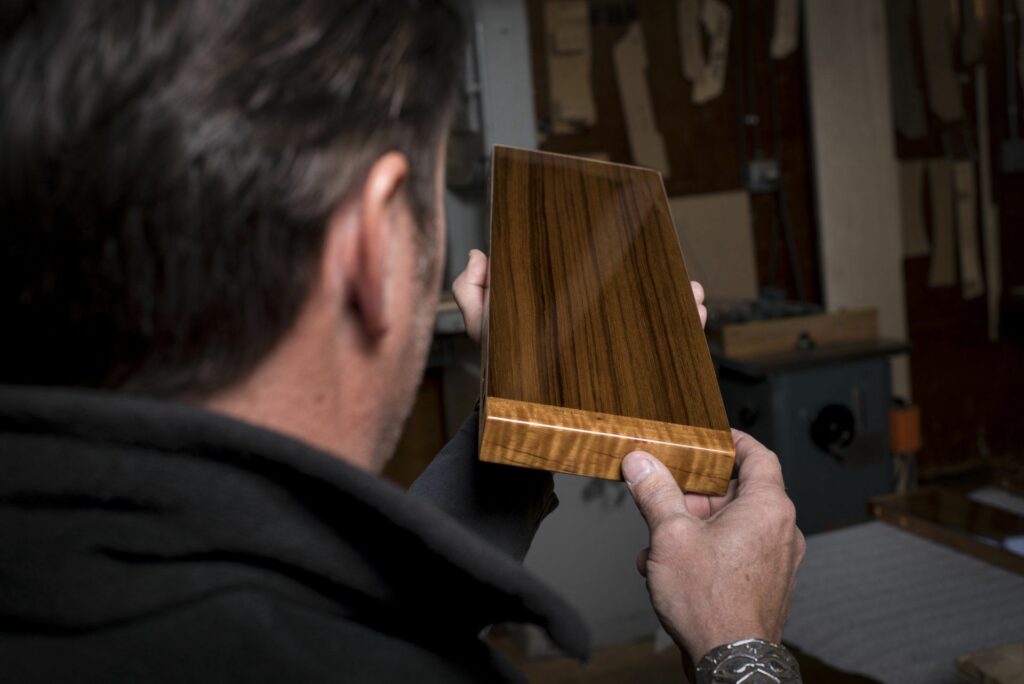
Contact the designer for assistance if your table exhibits tarnishing, discoloration, scratches, or other imperfections. At Lotus WoodWorks, our expanding round tables are meticulously designed to last and stay in top condition. One of our professionals can work with you to determine what’s causing the problem, whether it’s harmful cleaning habits or external environmental factors.
Signs That Professional Service is Needed
- Visible tarnishing
- Chips or scratches
- Stains that aren’t being removed with store-bought remedies
- Issues with the expanding/collapsing mechanism
Finding a Trusted Service Provider
Always go back to the original service provider who designed your expanding round table. They’ll have the most substantial. Understanding of its design, mechanisms, use and care. as well they will have the best ability to trouble shoot and remedy any issue that may be present. While other service providers may be just as experienced, companies vary in their design and craftsmanship process, so one minor difference in methodology can create further problems.

